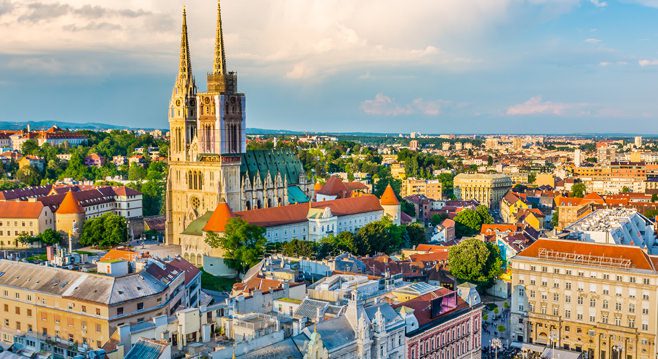
A worrying development in Croatia, the EU newest member state, highlights a creeping and overlooked trend of making journalists feel unwelcome and unsafe by some of the country’s top academic elite.
Several professional journalists in the country cover science and higher education policy, often critically – and rightly so, as all the indicators show stagnating or declining performance of most of Croatian science and higher education institutions.
But soon after some of these journalists covered a recent scandal over the now former science minister’s plagiarism allegations – confirmed as such by the highest research ethics body in the country, which is appointed by the parliament – an influential political faction accused them of being anti-state actors intent on destroying the institutions of civilized society and national identity.
They were accused of eroding the nation, its values and institutions through a deceptive and long term action akin to a type of slower revolution.
Journalists were named and shamed, and accused of ‘destrolution’ defined as ‘systemic destruction’ and ‘destructive action with hidden aims for which it tries to acquire wider acceptance through various means of manipulation’ (!) .
The aim of this ‘destrolution’ by science journalists in Croatia, we are told, is ‘to destroy institutional, legal and factual order, and especially the destruction of those institutions, authorities and values that are important for national culture and identity’.
Ante Covic, a vice-rector of the University of Zagreb, the biggest and the most criticised university in the media for its failure to reform and perform well, wrote two articles in Universitas (April 2017, page 11; and July 2017, page 11), a monthly university-funded pamphlet inserted into two of the country’s major daily newspapers.
His two articles read like a witch hunt that could be identifying individuals to be targeted by the right-wing nationalists and others who find themselves so inspired. It wouldn’t be the first time journalists in Croatia have been harassed, attacked or worse.
What makes this case different is that a key leadership member of a public university is publically stigmatising journalists and describing their work as an attack on the nation and its institutions, whereas in fact they’re simply doing their job of critically reporting on their area of expertise.
Indeed, his articles name several journalists and academics, including myself, and say that his article is only the start of what remains to become a ‘demanding research and practical challenge’. What this ‘practical challenge’ in dealing with these destructive individuals might be remains to be seen – but is as sure as hell chilling to read in a public university pamphlet in a EU member state.
The second article identifies what it calls ‘the matriarch of the destrolution’ – a leading science journalist in the country who happens to be a woman, Tanja Rudez, a reporter for Jutarnji List newspaper. A great ‘blessing’ of doing science journalism is turned into great ‘damage’ in her hands, we are told. She is ‘unprofessional and uncivilised’ it goes on, and her articles read like an ‘agitational leaflet’.
Her journalism, we are told, is ‘deadly for democratic order’ in Croatia, and she continually promoted ‘destrolution’ before ‘destrolution’ became a societal-political structure, so she can be considered to be a founder of this (made up and so-called) ‘destrolution’.
Another science journalist, Nenad Jarić Dauenhauer, reporter for the news website index.hr, is accused of hosting a ‘media-operative headquarters’ where targets are set and action coordinated as part of this fantasy revolution dreamed up by Croatia’s publically-funded university vice-rector.
I’m accused of ensuring international promotion of this made up destrolution, presumably because I have written for international media about challenges facing Croatia’s scientists.
Absurdly, the actual news peg for the first of these two articles was the ‘March for Science’, a global demonstration that was embraced by many mainstream scientific institutions, such as the American Association for Advancement of Science. In Croatia, however, this key academic saw people writing about the march as being destructive to society!
Both articles are a chilling read, and it’s not inconceivable that they could be interpreted as a call to action against the individual journalists mentioned in it.
Another unusual thing about this case is that most of the named reporters are first and foremost science journalists, a field that may seem unlikely to be a dangerous one. But as power and academia in Croatia have become so intertwined over the years, with law and economy faculties directly linked with the political parties and institutions of power, it appears that even science and higher education reporting is becoming one where journalists have to fear potential reprisals in Croatia.
The message from these articles seems clear: we know who you are and we think you’re the enemies of the state, nation and its cultural identity. Let’s hope it doesn’t progress further.
Article by Mico Tatalovic,
A worried science journalist from Croatia / September, 2017